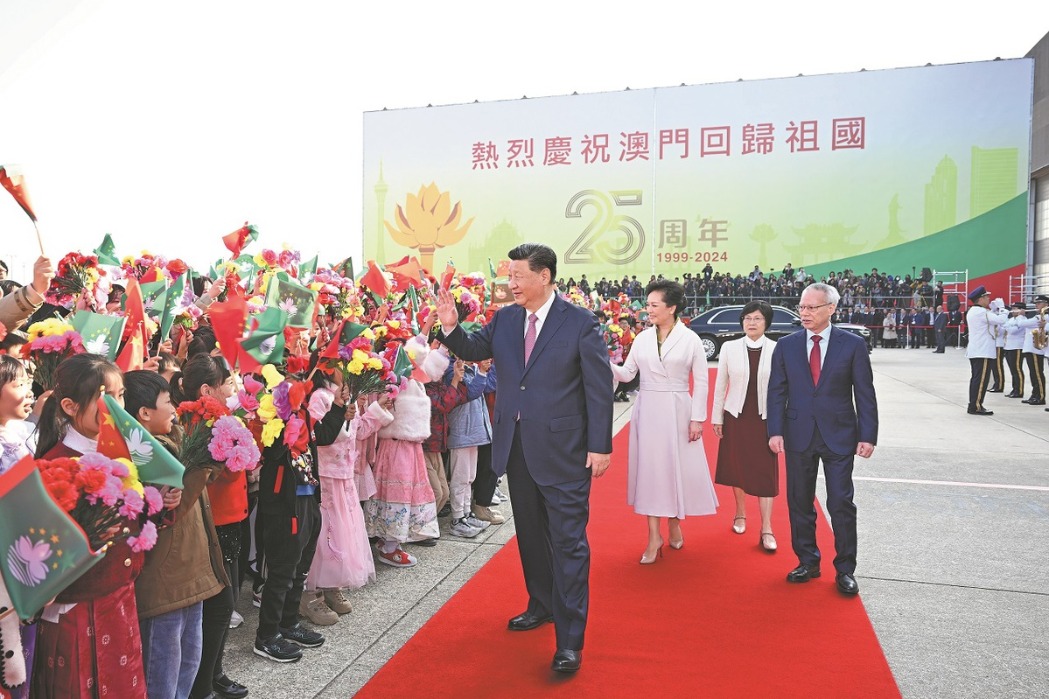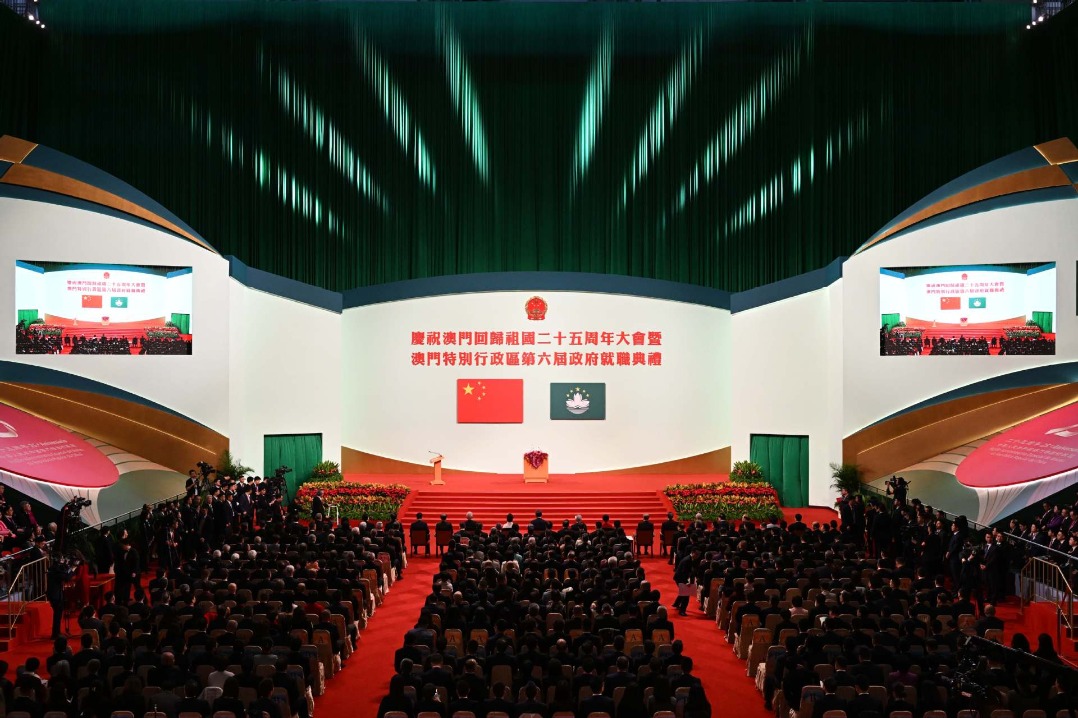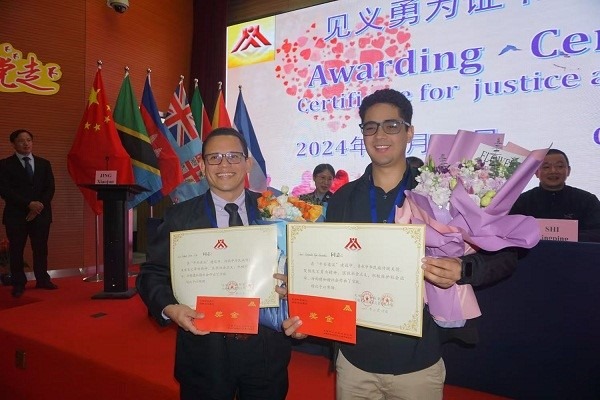Legal work involving foreign parties gets policy boost


China has stepped up efforts to increase legal research involving external affairs and develop talent in this regard, to better face complex international situations and promote its goal of advancing overall law-based governance, as required by President Xi Jinping.
In late March, about four months after Xi emphasized, during a central conference, taking a coordinated approach to promoting the rule of law at home and in matters involving foreign parties, the country's first institute specializing in legal research related to external affairs was set up at the University of International Business and Economics in Beijing.
The institute aims to implement Xi Jinping Thought on the Rule of Law, which was noted during the conference in November, innovate the research system and fulfill the nation's opening-up policy by integrating its teaching resources, including those dealing with international law, foreign languages, global relations and governance.
It is also expected to promote studies on fundamental, pioneering and strategic foreign-related law issues and play an active role in the formulation of international rules.
Guo Zhen, a lawyer from Fujian province with 10 years' experience in handling foreign-related disputes, highlighted the significance and urgency of legal research involving external affairs. "The more we focus both on the studies and practice, the better we'll be able to face new and complex international situations, especially during the ongoing COVID-19 pandemic," Guo said.
Compared with when she first studied international law, "the country has made more of an effort to increase knowledge and research in this field, and projects aimed at cultivating talent have also been put forth", she added.
As a national legal research base, the China University of Political Science and Law has strengthened cooperation with Beijing Foreign Studies University on talent education.
Kong Qingjiang, head of the CUPL's International Law School, said, "Outstanding graduates from BFSU's language schools can be recommended to us without exams to pursue master's degrees of international or comparative laws."
Kong said the two universities have also established an exchange program this year in which 15 students from each are allowed to complete law and English studies in each other's school, giving them the opportunity to earn a joint bachelor's degree.
"What we've done is provide students with the best resources for law, languages and foreign studies to enhance their learning ability, and to create a reserve of versatile talent for our country to face challenging and evolving international situations," he added.
As a postgraduate student of CUPL's International Law School, Ma Jinduo, 22, said she has felt more responsibility placed on her shoulders since the country has accelerated efforts to advance the rule of law involving external affairs over the past few years.
"I'm feeling more valued and needed now, since the goal has been highlighted and expressed in various ways, including in outer space ambitions, deep-sea exploration and diplomatic efforts," she added. "I understand that what I'm studying is important not only for upholding justice, but also for protecting the nation's core interests."
At the November meeting, Xi, who is also general secretary of the Communist Party of China Central Committee and chairman of the Central Military Commission, rolled out new requirements on work related to overall law-based governance in 11 aspects.
While calling for stronger measures to improve legal work involving foreign parties, he demanded efforts to better safeguard national sovereignty, security and development interests.
To meet these requirements, the Standing Committee of the National People's Congress, the country's top legislative body, clarified in its annual work report issued in March that it would upgrade China's legal toolkit to meet challenges and guard against risks in its efforts to oppose foreign sanctions, interference and long-arm jurisdiction.
On June 10, a law countering foreign sanctions was passed by the top legislature after its second deliberation and took effect immediately. The 16-article law is considered to be of great practical and long-term significance, and it will effectively improve China's legal capabilities in dealing with external risks and challenges and speed up the formation of a comprehensive legal system involving foreign affairs.
Ma, the postgraduate student, said she has paid attention to the law and requirements, "as they're useful for my study and also a must for those willing to be engaged in the industry of providing foreign-related legal services".
Kong, of CUPL, said the country's greater strength in foreign legal affairs means more employment opportunities for law school students, who will face higher standards in their studies.
Kong added that in line with the nation's efforts, it is also necessary to provide more internship opportunities in courts or international institutes to help students apply what they have learned.
Guo, the lawyer from Fujian, suggested that students seek and seize such opportunities, particularly those provided by maritime courts or international arbitration centers, "because the experience in these places will also contribute to improving the quality of our foreign-related legal services and enhancing our status in the world".
- China mulls draft law to promote private sector development
- 39 held accountable for coal mine gas explosion in Henan province
- Former general manager of China Datang Corp under probe
- China mulls amendment to Anti-Unfair Competition Law
- President Xi encourages young people at the inaugural ceremony of the new Macao SAR government
- Chang'e 6 samples shed light on lunar magnetism




































